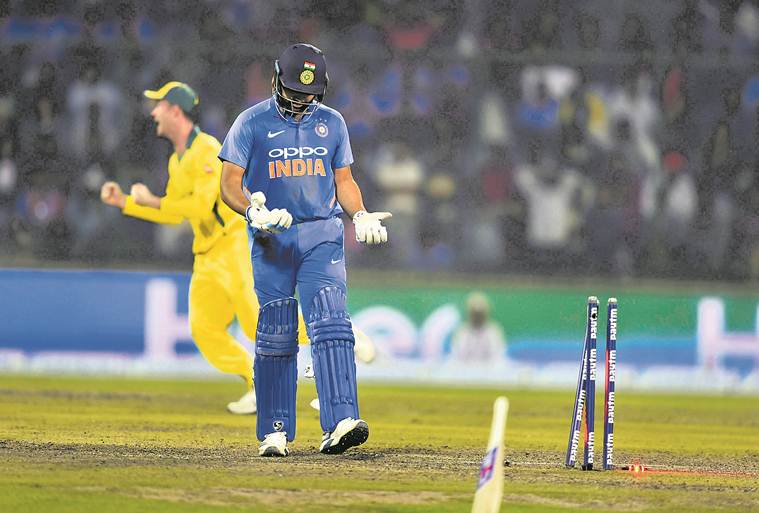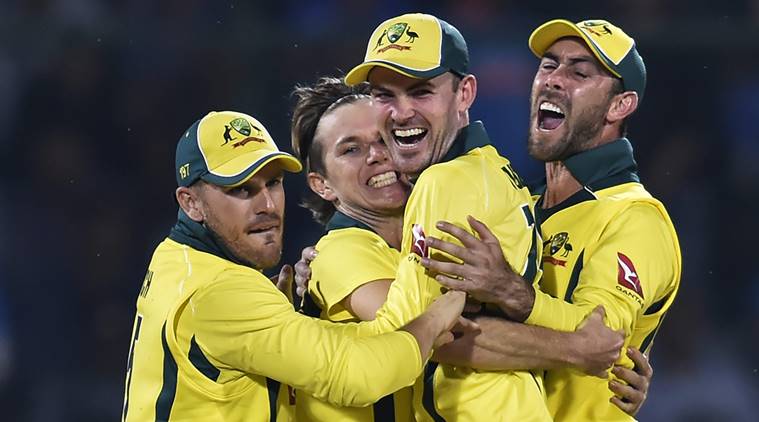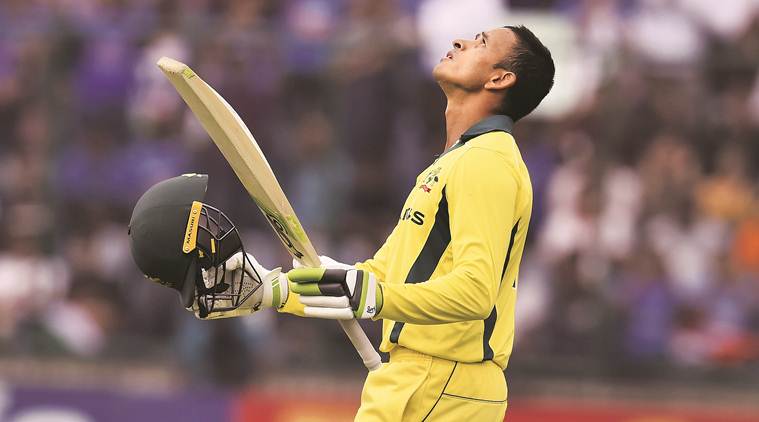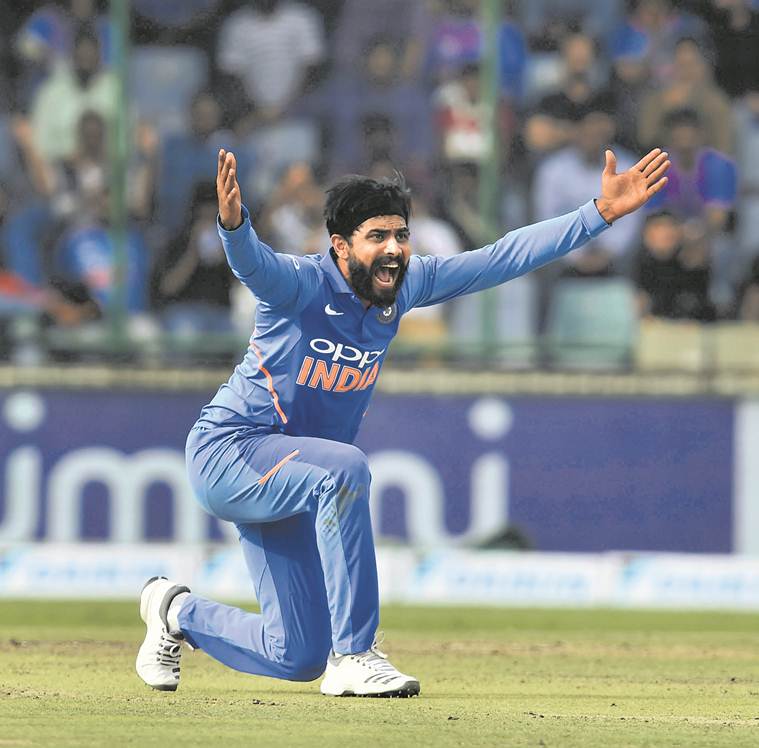
A day before the 2011 World Cup final, the then India skipper MS Dhoni had rendered a philosophical one-liner: “Till the full stop doesn’t come, the sentence is not complete.” Dhoni was emphasising the need to finish off good tournaments on a high. Next evening, he completed the sentence with a six that drew an exclamation mark.
On Wednesday, on a balmy Kotla evening, India failed put the full stop. They capsized chasing a modest, by modern-day-standards, 272, falling short by 35 runs, and thus conceding the series to Australia. It was series they had mostly dominated, it was a game in which they were on the ascendancy at the break. Their bowlers, led by Jasprit Bumrah, had done remarkably well to restrict Australia from running away with a 300-plus total. However, the batsmen couldn’t give the finishing touch.
Worryingly, it wasn’t a one-off. The Indians were ruthless in the 2017 Champions Trophy, looking like the team to beat, until they froze against Mohammed Aamir’s swing bowling in the final. Before that, they had lost the 2015 World Cup semifinal against Australia. On both occasions, they had lost while chasing. Around these instances of stage-fright have been some comfortable chases, masterminded mostly by Virat Kohli himself, albeit when the pressure wasn’t as suffocating as it is during big games.

Historically, India have been poor chasers. Just think of the several Asia Cup defeats throughout the 90s and early 2000s. But then, between the grainy past and the HD present was a generation undaunted by tall totals, pressure or burden, beginning with the Natwest Trophy final to the 2011 World Cup final. A reason India could pull off several of those heists was a crew of batsmen adept at the dynamics of orchestrating a chase, those specialised finishers from Dhoni and Yuvraj Singh to Suresh Raina and (fleetingly) Mohammad Kaif.
Game awareness
All of them were impeccable stroke-makers — India have a few of them among the current bunch as well. But what set them apart was their nous, or game awareness. If one deconstructs some of Yuvraj’s knocks, one will find that there was no particular pattern to his scoring rate, but he read the situations supremely well. Every stroke was context-dependent. If the run rate was within his grasp, he would just motor along with singles and twos; if the situation warranted big strokes, he would unfurl his repertoire of booming drives. He would seamlessly switch between avatars.
Dhoni and Raina had different methods, the latter was irrepressibly enterprising, while Dhoni would tip and tap before his bottom hand sent balls sailing over cow corner. All of them were calculating as well as composed, besides blessed with flexibility and clarity in stroke-making. And on their shoulders was wrought India’s 2011 World Cup triumph.

The present bunch doesn’t lack confidence or the strokes, but doesn’t read contexts as efficiently as their predecessors, when pressure ratchets up. On such occasions, they become increasingly prone to playing out of character. Like the usually sedate Vijay Shankar, who went for an ambitious loft, or the intrinsically aggressive Rishabh Pant offering a forward defensive shot to Nathan Lyon. These are strokes that betrayed a confused mindset, a bid to defy their own instincts. A different situation would have drawn a different response from them. Had this not been the series-decider, they could have been more relaxed, and thus approached the chase with more clarity. Scoreboard pressure wouldn’t have been this suffocatingly inexorable.
Agonisingly for India, the problem isn’t limited to Pant and Shankar, still cutting their teeth at this level. Even the experienced Rohit Sharma or Shikhar Dhawan haven’t quite influenced the outcome of titles or series-defining fixtures. To a lesser extent, Kohli too hasn’t been as prolific in such contests as he routinely is. In the 2015 World Cup semifinal, he eked out just a single, in the Champions Trophy final, he managed only five. In the 2015 series-deciding final ODI against South Africa in Mumbai, he scored seven. Rohit’s corresponding numbers read 34, 0, 16. Dhawan’s pile reads 45, 21, 60. For a team hinging on this batting triumvirate to win trophies, these are wobbly numbers.

They don’t belittle their terrific batsmanship, but here’s a blot they could rub off in times to come – nothing as timely as sometime during the imminent World Cup.
It could also be contended that the problem is accentuated with the diminishing of Dhoni as a finishing exemplar. It’s the reason the team management has been scratching their heads and splitting their hair in a bid to unearth his successor. As they haven’t discovered one, they have tried to unearth one. And now it’s wishful thinking that one of them – Pant or Shankar or KL Rahul or Kedar Jadhav – would evolve into the one that completes the sentences. As of now, they are ending with question marks.